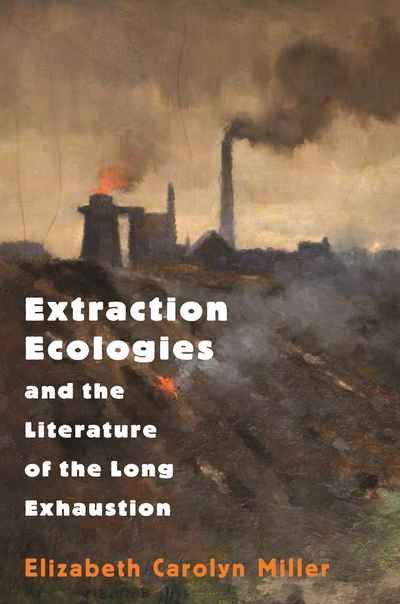Extraction Ecologies and the Literature of the Long Exhaustion

Paperback (Trade paperback US) | Feb 2022 | Princeton University Press | 9780691205533 | 288pp | 234x155mm | RFB | AUD$59.99, NZD$69.99
Hardback (B315) | Oct 2021 | Princeton University Press | 9780691205267 | 288pp | 234x155mm | GEN | AUD$170.00, NZD$214.99
How literature of the British imperial world contended with the social and environmental consequences of industrial mining
The 1830s to the 1930s saw the rise of large-scale industrial mining in the British imperial world. Elizabeth Carolyn Miller examines how literature of this era reckoned with a new vision of civilisation where humans are dependent on finite, nonrenewable stores of earthly resources, and traces how the threatening horizon of resource exhaustion worked its way into narrative form.
Britain was the first nation to transition to industry based on fossil fuels, which put its novelists and other writers in the remarkable position of mediating the emergence of extraction-based life. Miller looks at works like Hard Times, The Mill on the Floss, and Sons and Lovers, showing how the provincial realist novel’s longstanding reliance on marriage and inheritance plots transforms against the backdrop of exhaustion to withhold the promise of reproductive futurity. She explores how adventure stories like Treasure Island and Heart of Darkness reorient fictional space toward the resource frontier. And she shows how utopian and fantasy works like Sultana’s Dream, The Time Machine, and The Hobbit offer imaginative ways of envisioning energy beyond extractivism.
This illuminating book reveals how an era marked by violent mineral resource rushes gave rise to literary forms and genres that extend extractivism as a mode of environmental understanding.
'Elizabeth Carolyn Miller’s delineation of a ‘literature of exhaustion’ provides an indispensable frame for studying nineteenth-century literature. Focusing on texts on and from various locations, she brings together an imaginative range of materials and reads them in ways that are brilliant, unexpected, and refreshing. There is no way to overstate the importance of this book.' — Sukanya Banerjee, author of Becoming Imperial Citizens: Indians in the Late-Victorian Empire
'This is a magnificent book. Miller’s deft readings are substantial and illuminating, and the range of literary examples is fantastic. I will never look at adventure fiction or buried treasure the same way again.' — Jesse Oak Taylor, author of The Sky of Our Manufacture: The London Fog in British Fiction from Dickens to Woolf
'Miller shows how keenly aware Victorians were of the manifold ways in which ordinary life was utterly dependent on a finite and dwindling stock of material resources. This lucid and persuasive book is essential for readers who want to understand how literary culture was shaped by the realities of a new world economy set on ecologically unsustainable foundations.' — Allen MacDuffie, author of Victorian Literature, Energy, and the Ecological Imagination
